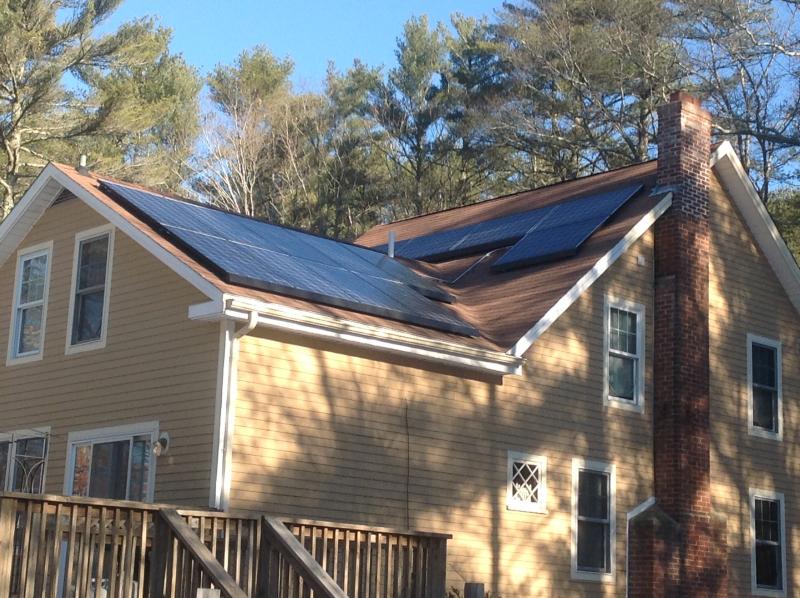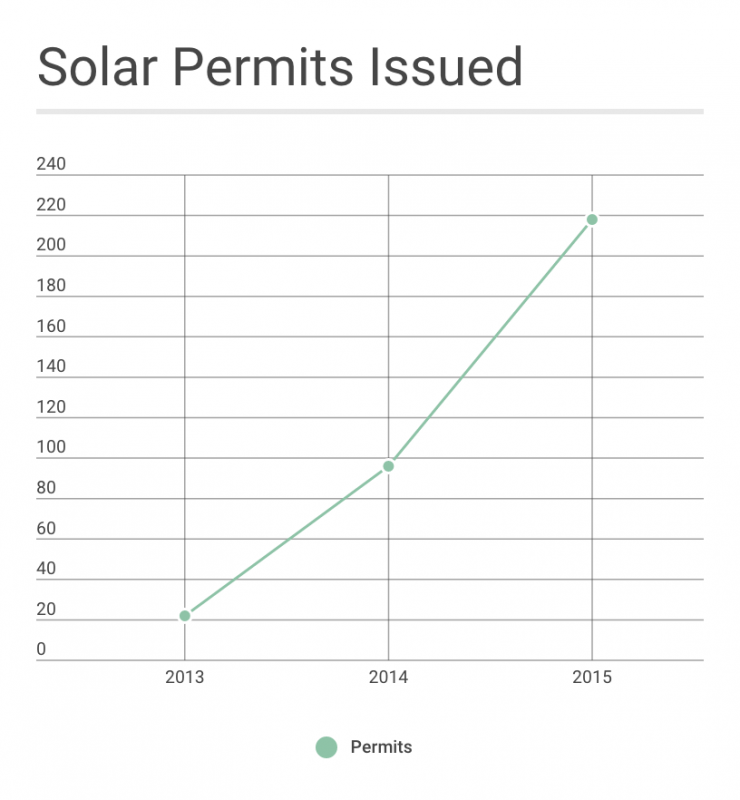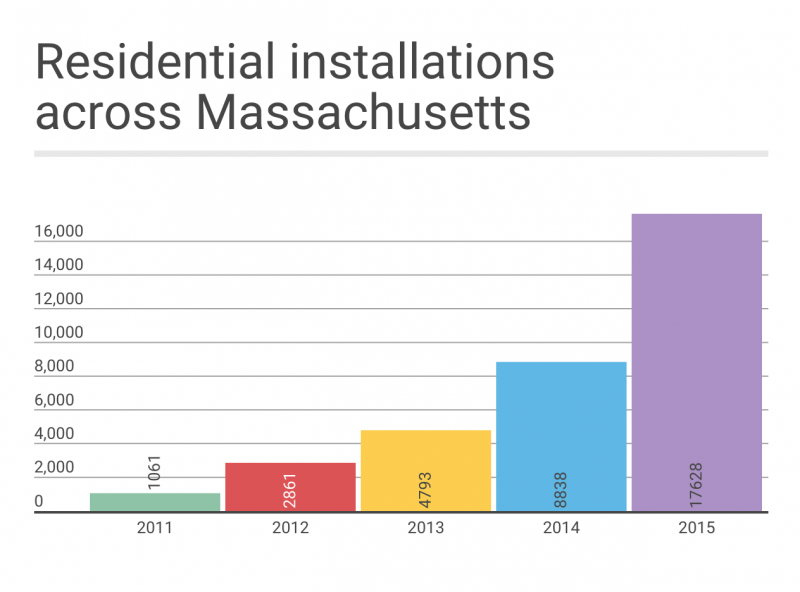Wareham and Onset see rise in residential solar usage
David Moore is a self-professed “cheap guy.”
Moore, the town’s Building Inspector, decided to install solar panels on his home several years ago, for the financial incentives, rather than the ecological benefits.
“I’m not a green guy, and I couldn’t care less,” Moore said.
And Moore isn’t alone in his decision to use solar power. Since 2013, solar installations in Wareham and Onset have climbed sharply, said Building Inspector David Moore, which he said is typical all over the state. Though the shift does benefit the environment, as well as the wallets of solar users, thanks to the state, it also comes at a cost to electric companies and their non-solar customers.
According to the town’s available data, in 2013, there were just 22 solar panel permits issued. In 2014, there were 96. But in 2015, that number spiked to 218, for a total of 336 solar permits issued over the past three years.
Moore said the notable increase in 2015 is because the state considered cutting incentives for solar users, which it ultimately did not.
Massachusetts offers residents several incentives for switching to solar power. These include a personal income tax credit of up to $1,000, a tax exemption for the equipment purchased, and a local property tax exemption.
But not all solar systems are created equal. There are two different ways to get solar energy: leasing and buying. Households that lease solar panels usually don’t pay for anything on installation, except a monthly fee to the solar company. Households that buy solar panels from a company pay for the panels and installation, but nothing to the company that installed them.
Though solar isn’t a full replacement for traditional electrical utilities, solar users see their electrical bills significantly drop. Wareham resident Paula Ventura and her husband leased solar panels from California-based Solar City in October 2015, and saw about an $80 drop on their electrical bill in January, based on the average $195 they were paying throughout the year.
“Mind you, this is a very low-producing month with [fewer] hours of sunlight,” Ventura said.
During peak summer months, Ventura said, the panels will produce more sunlight, dropping their bill to around $48. They also pay the solar company from whom they lease the panels $48.50 a month – still cheaper, overall, than their original bills.
Ventura said her husband, who works at Home Depot, saw a solar installation representative in the store, and started “picking his brains.” When Ventura's husband proposed the idea for their own house, she was skeptical at first – “they say it’s free, but I was sure there was going to be a hidden charge” – but eventually relented. She said she is happy with the decision, and the panels on the roof don’t look as awful as she’d feared.
“You don’t even see them, honestly … the way our house is situated,” Ventura said. “I have friends who have been to the house, and when I say we have solar panels, they are like, ‘Oh, you do?’”
She also said roofs do not have to be new to support the panels.
Wareham resident Craig Canha bought his solar panels from Reliable Solar Solutions and had them installed in December 2015. Even though buying the panels are significantly more expensive up front, he said he opted to buy the panels, because there is a bigger payoff, over time. He also said he has the advantage of pocketing the savings, rather than paying them to the solar company, which he would have had to do, if he had leased them.
“You pay [the solar companies] 12 – 14 cents per kilowatt,” Canha said. “That’s why there are a lot of solar companies around, and they pocket the money.”
According to a study done by the Massachusetts Department of Energy Resources, buying the panels is more financially beneficial than leasing them.
Though Canha said he hasn’t had them on his house long enough to see any results, he is looking forward to the end of the year’s electrical bill.
“The system that was installed at my house is big enough that over the whole year it will produce enough power to fully power the house, and I won’t have to pay the utility company anything.”
There is also another method of storing surplus solar energy. Both Ventura and Canha, who each have 10-year contracts, expect to see a surplus of electrical energy they can have “stored” in a sort of solar bank account, which is kept by the solar company and the state, respectively. The extra, unused energy each household generates can be drawn on during months with little sun.
Canha, an electrician, plans to wait until the end of the year to see how much extra energy his solar panels have produced. Depending on the amount, he said, he may get an electric furnace and heater, to supplement the current oil-based heating systems he has.
But Canha can also make money from his solar panels. Among the state incentives for installing one’s own solar panels is $280 for every megawatt of energy generated, which adds up, Canha said.
“My system will produce approximately 12 megawatts per year,” Canha said. “If you do the math, I could get an extra $25,000 – $30,000 back from the state for the program.”
He said the state also reimburses up to 30 percent of the cost to install the panels he bought.
















